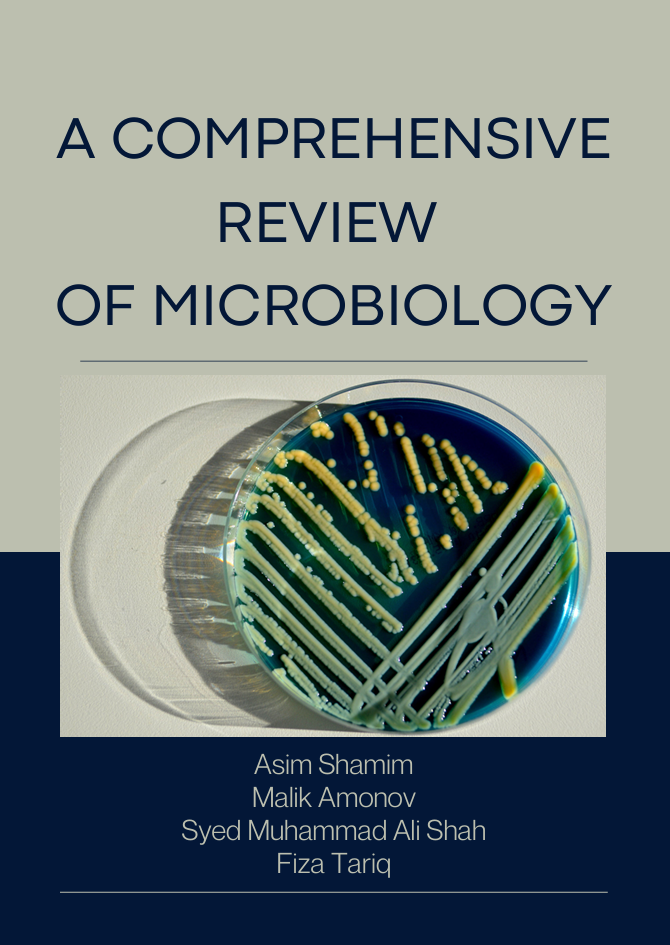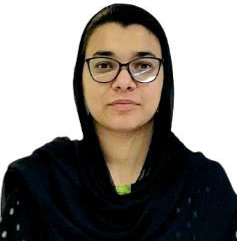
About The Editors

Dr. Asim Shamim achieved his secondary education from Neelum Public School, Shoukat Line Muzaffarad, Azad Kashmir, Pakistan, and higher secondary education from Pine Hills Public School and College, Abbottabad, KPK, Pakistan. He has completed his Doctor of Veterinary Medicine degree from Sindh Agriculture University Tandojam, Sindh, Pakistan, in 2003. Dr. Shamim completed his MSc. (Hons) and doctorate degrees in the subject of veterinary parasitology from the Department of Veterinary Parasitology, Faculty of Veterinary Sciences, University of Agriculture, Faisalabad, Punjab, Pakistan, in 2005 and 2016. He started his professional career as a veterinary officer in the Department of Livestock and Dairy Development of the Government of Azad Kashmir in 2007. Later in 2008, Dr. Shamim started his career as a lecturer in the Faculty of Veterinary and Animal Sciences under the umbrella of the University of Azad Kashmir Muzaffarabad, and then in 2012 he continued his services in the Department of Pathobiology (Parasitology Section) in the Faculty of Veterinary and Animal Sciences, University of Poonch, Rawalakot, Azad Kashmir, Pakistan. Presently Dr. Shamim is working as an associate professor of parasitology in the Department of Pathobiology (Parasitology Section), Faculty of Veterinary and Animal Sciences, University of Poonch, Rawalakot, Azad Kashmir, Pakistan. So far, he has published more than 45 research papers as a principal and co-author on various aspects of parasites in well-reputed journals and presented at national and international-level conferences. He has successfully completed three research projects as PI/Co-PI. Additionally, he has mentored ten M.Phil. and two PhD. scholars. Moreover, Dr. Shamim is a reviewer and member of the editorial board of national and international impact factor journals and has published three book chapters and many extension articles. His thematic research area is molecular epidemiology of parasites in general and tick and tick-borne diseases of humans and animals in specific.

Malik Amonov, MD, PhD, is a dedicated medical
doctor and research scientist with a strong
interdisciplinary
background
in
microbiology,
immunology, and public health. With over 15 years of
experience in medical research, Dr. Amonov has
focused extensively on microbial pathogenesis and
innovative vaccine development, particularly within
the realm of bacterial infections. Holding a PhD in
Microbiology and Immunology from Sultan Zainal
Abidin University and an advanced degree in public
health from Tashkent Pediatric Medical Institute, he
combines deep expertise in infectious disease
dynamics with a commitment to advancing global
health outcomes through scientific research, clinical
insights, and education.
Throughout his career, Dr. Amonov has specialized in
the design, development, and assessment of live
attenuated vaccines, making significant contributions
to Streptococcus pneumoniae research. His work spans
genetic
mechanisms
of
bacterial
attenuation,
immunogenicity evaluations, and gene-knockout
studies, aimed at enhancing vaccine safety and
efficacy. As a Senior Lecturer at the Faculty of
Medicine, Sultan Zainal Abidin University, he oversees research projects, mentors Master’s and PhD
students, and leads initiatives in experimental design
and advanced data analysis.
In addition to his vaccine research, Dr. Amonov has
contributed to comparative genomic studies of
pathogens such as Acinetobacter baumannii,
collaborating internationally to address antimicrobial
resistance and infectious disease control. With a robust
portfolio
of
peer-reviewed
publications
and
presentations at international conferences, he actively
contributes to the academic and medical research
community. By integrating clinical insights with
scientific expertise, Dr. Amonov’s work not only
drives advancements in microbiology but also supports
critical public health needs in preventing and
controlling
infectious diseases,
particularly
in
underserved populations.

Dr. Syed Muhammad Ali Shahfrom Lahore, a
Doctor of Veterinary Medicine from the University of
Poonch Rawalakot, is also a researcher and global
health advocate. Passionate about cultural diversity and
collaboration, he has written over 20 book chapters and
articles and served as a guest speaker in various
webinars, conferences and workshops. His research
spans topics such as zoonosis, animal welfare,
microbiology, parasitology, and epidemiology, with a
focus on parasite transmission prevention.
Dr. Shah is the first Pakistani selected for the "Virtual
Global Health Elective" at Child Family Health
International, contributing to global health initiatives
and zoonotic disease prevention. He is committed to
the United Nations SDGs, particularly SDG 2, and has
trained individuals for the Zambian Open Private School Association.
In addition to volunteering for student organizations
like SYNCH Pakistan and the International Veterinary
Students Association, Dr. Shah is dedicated to
improving veterinary medicine, public health, and
global well-being through research and collaboration.
His mission is to bridge healthcare gaps in wildlife and
underdeveloped regions, promoting harmony between
humans, animals, and the environment.

Dr. Fiza Tariqwas born in Shakargarh, Punjab,
Pakistan. She completed her DVM degree from the
University of Poonch Rawalakot with gold medal in
2022 and is currently pursuing a post-graduate degree
in Veterinary Medicine at the University of Veterinary
and Animal Sciences, Lahore. Supported by her
family, Dr. Tariq has always been passionate about
research.
During her DVM studies, she gained hands-on
experience through internships at various government
and public institutes, treating both infectious and non
infectious diseases. After working briefly as a
veterinarian in a private hospital, she left to focus on
her post-graduate studies and research in areas such as
Bovine Mastitis, tick-borne diseases, and plant and
chemical poisonings in livestock.
Dr. Tariq is also an emerging author, contributing
chapters to national and international books and case
studies. She is currently co-authoring her first book
aimed at helping researchers, farmers, and farm owners
reduce economic losses caused by parasites.
About The Book
Viksit Bharat Vision 2047: Economic Growth, Digital Empowerment & Inclusive Growth presents a multidimensional view of India’s economic transformation as the nation advances toward its developmental goals for 2047. This book brings together a diverse set of scholarly contributions that examine the critical pillars shaping India’s growth—economic innovation, digital infrastructure, inclusive financial systems, regulatory reforms, and emerging sectors. The chapters explore a wide range of issues including structural economic challenges, the rise of digital banking and marketing, corporate social responsibility through digital tools, and the socio-economic impacts of wellness and belief-based industries. It also discusses pressing policy matters such as antitrust reforms, labor rights, and investment behavior in a globalized economy. This book is an essential resource for researchers, policymakers, students, and professionals who wish to gain a deeper understanding of the complex socio-economic dynamics driving India’s journey toward becoming a digitally empowered and economically inclusive nation by the centenary of its independence.




